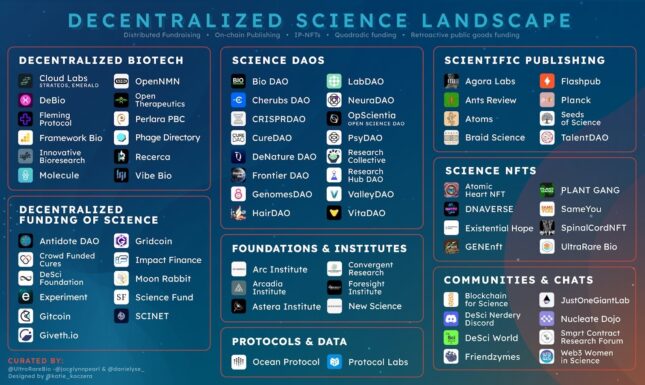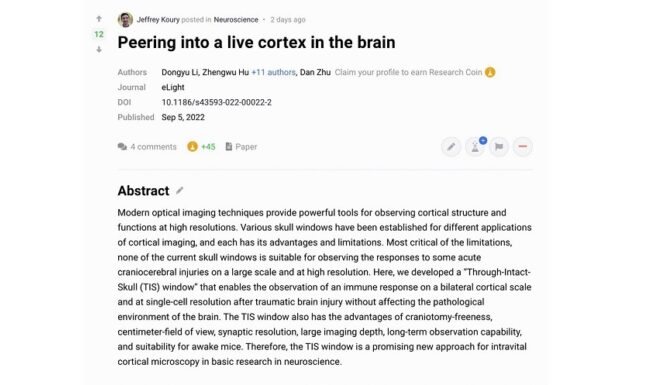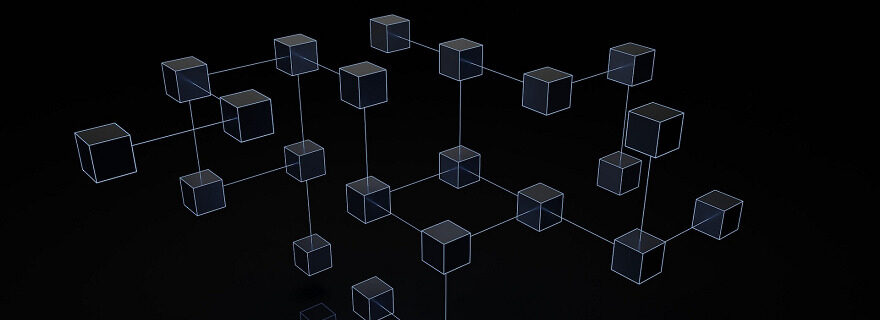SciCon 2022: A look at Decentralized Science
In July 2022, the first SciCon took place with the aim of connecting the metascience community with the Decentralized Science movement (DeSci). This post briefly summarizes the experience and introduces DeSci to the reader.
The event
SciCon 2022 has been an online event seeking to bring together members of the academic metascience community and DeSci, to discuss some of the issues that exist in scientific research and highlight how DeSci efforts might contribute to improve the way we do science. SciCon has been organized by one of the leading DeSci initiatives: ResearchHub.
While the conference included tutorials, community workshops and even a week-long community competition to write new contributions, talks were organized over two days and included a rich set of topics. Several prominent DeSci projects and initiatives were presented, with themes as varied as decentralized medical trials (Azizi Seixas, NYU’s Langone Health), decentralized research centers (Eugene Leventhal, Smart Contract Research Forum), open verifiability and reproducible, on-chain scientific records (Christopher Hill, DeSci Labs), among many more. For the metascience community, Silvio Peroni presented on how to enable reproducible studies through Open Citations, Ludo Waltman introduced the recently launched “Publish your Reviews” initiative, while I presented on the (selfish) advantages of making research data open.
In their talk, the co-founders of ResearchHub Patrick Joyce and Brian Armstrong further explained the motivation for SciCon and, more broadly, their vision for DeSci. The full program of SciCon and all the talks are available online, I invite you to take a closer look.
Decentralized Science
But what is DeSci exactly? On Ethereum.org, we find the following definition:
In short, projects in DeSci apply blockchain technology to science. DeSci is inspired by the open knowledge movement and related to the open software and open science communities and efforts.
In a brief period, the DeSci landscape grew substantially on the onset of the general 2021 blockchain and crypto currency boom.
A recent illustration of the DeSci landscape is provided in the DeSci Wiki (@UltraRare Bio):


The DeSci movement is diverse, yet several biotechnology initiatives stand out, including funding organizations, decentralized laboratories, incubators and more. Molecule is developing a decentralized protocol to fund and manage research-related IP (Intellectual Property) in biotech. Key to Molecule’s approach is the use of blockchains to accelerate funding biotech research and building a marketplace for the generated IP. They recently raised above 12M$ in venture funds for future development. Many more Decentralized Autonomous Organizations (DAOs) also play a prominent role in DeSci. These are communities managed via blockchains, sometimes associated with incorporated entities (e.g., companies), just like Molecule. Another example is VitaDAO, focused on crowdfunding longevity research through the VITA token.
Scientific publishing also attracts considerable effort in DeSci, especially towards re-designing the peer review system. Science Non-Fungible Tokens (NFTs) are used to record and manage scientific outputs, for example Intellectual Property, reviews and publications. Several initiatives focus on funding research or other forms of commons with a considerable degree of different instruments. Gitcoin Grants fund public commons via Quadratic Funding, an optimal way for crowdfunding public resources within a community. Lastly, it is worth mentioning that some research-focused organizations have also been started with ties, yet not a direct involvement with DeSci. For example, the Astera Institute specializes in frontier research and technology projects (including on metascience) using Focused Research Organizations (FROs) as an instrument to combine the two.
On this site, we can find an (optimistic) overview of the ways in which DeSci could contribute to improve the scientific ecosystem:
| Decentralized Science | Traditional Science |
|---|---|
| 1. Distribution of funds is determined by the public using mechanisms such as quadratic donations or DAOs. | Small, closed, centralized groups control the distribution of funds. |
| 2. You collaborate with peers from all over the globe in dynamic teams. | Funding organizations and home institutions limit your collaborations. |
| 3. Funding decisions are made online and transparently. New funding mechanisms are explored. | Funding decisions are made with a long turnaround time and limited transparency. Few funding mechanisms exist. |
| 4. Sharing laboratory services is made easier and more transparent using Web3 primitives. | Sharing laboratory resources is often slow and opaque. |
| 5. New models for publishing can be developed that use Web3 primitives for trust, transparency and universal access. | You publish through established pathways frequently acknowledged as inefficient, biased and exploitative. |
| 6. You can earn tokens and reputation for peer-reviewing work. | Your peer-review work is unpaid, benefiting for-profit publishers. |
| 7. You own the intellectual property (IP) you generate and distribute it according to transparent terms. | Your home institution owns the IP you generate. Access to the IP is not transparent. |
| 8. Sharing all of the research, including the data from unsuccessful efforts, by having all steps on-chain. | Publication bias means that researchers are more likely to share experiments that had successful results. |
While some arguments appear less convincing to me, or at least not clearly benefitting from using blockchain technology (e.g., 2, 4, 7 or even 8), others not only intervene on open challenges in the science ecosystem, but also promise to leverage the strengths of blockchain technology (e.g., 1, 3, 5 or 6). Personally, the areas where I see most promise for DeSci include 1) developing open and distributed infrastructures to track and incentivize scientific outcomes (e.g., reviews and replications), 2) opening alternative sources of funding, and 3) providing a playground to experiment with organization and incentive design in science (e.g., including around publishing and funding).
ResearchHub, the organizer of SciCon 2022, is a decentralized autonomous organization (DAO) attempting to combine all three of these aspects. Let us take a closer look to further showcase how blockchain technology is being used in DeSci.
A DeSci organization: ResearchHub
ResearchHub is a community effort to accelerate the pace of scientific research by making its publication, review and discussion more open and collaborative. The Hub uses a crypto currency (Research Coin or RSC) to incentivize participation. The portal currently supports a variety of science publishing activities including sharing, discussing and reviewing articles, or even incentivizing activities via bounties, such as answering a research question.
A central feature of ResearchHub is the possibility to upload a research paper (or pre-print) for further analysis, as in this example:


A paper can then be openly discussed, peer reviewed or summarized (like in this case), via an interaction like Reddit’s:


To know more
DeSci has so far developed with little input from the scientific community. While the movement is young and sensitive to the broader crypto market sentiment, we can certainly use more experimentation in how we go about doing science. Often, it is easier and faster to think outside of the established system. This means that, while many, if not most DeSci projects might not last, the movement has the potential to develop out-of-the-box solutions to at least some of the considerable challenges currently facing scientific research. To know more, the best way is to check this very comprehensive and up-to-date overview of DeSci initiatives and, if any interests you, not hesitate to get involved. Another option is to get in touch with me: I will be happy to help.
Disclaimer: The author volunteers as a Metascience editor for ResearchHub.
Header image: GuerrillaBuzz Crypto PR



0 Comments
Add a comment